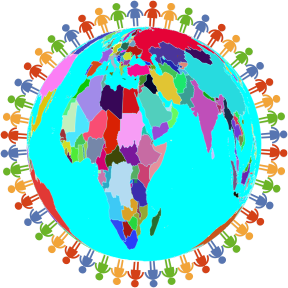Empowerment & Participation

Empowerment:
In the context of Stepping Stones, our approach is that women’s personal, social, legal and economic empowerment is of ‘intrinsic’ benefit to them (and their right); and it can also be of ‘instrumental’ benefit to the whole community. Many development initiatives focus mainly on women’s instrumental role as carers and supporters of others around them in a community. Our approach instead places women’s own rights first. Just as in an aeroplane, when passengers are instructed to put on their own oxygen mask in an emergency before helping those sitting next to them, we see it as critical that women should be supported to look after themselves first – to achieve their own rights. Only then is it reasonable to ask them to support others around them.
In our work with Stepping Stones over the past 24 years, we have repeatedly seen that when women have been able to realise their own full rights, they have then also been best placed to support others around them.
We see the process of women’s empowerment therefore not as a battle between the sexes, with winners and losers, but as an ongoing process whereby everyone in a community supports one another so that everyone benefits and gains.
After Stepping Stones workshops, men and boys have often spoken very positively about the experience. They describe how they have developed better relationships with women and girls in their communities – and vice-versa. They have talked about the reduction in stress through greater shared decision-making, shared task-sharing and less quarreling and related violence in households. They have reported feeling happier, having better sexual relationships with their partners, and generally feeling that their lives are more harmonious and have more meaning.
Participation:
In the context of Stepping Stones, we seek to include different members of a community more effectively by running four separate peer group processes within the overall training programme.
Community members are normally invited to choose for themselves which group they would like to join with their peers – of older men, younger men, older women, younger women. Sometimes the boundaries between the groups can be based on whether an individual is already a parent or not; at other times biological age or education/livelihood stage is more of a factor. It is up to each community itself to decide on the criteria – which is part of the participatory process. The idea in Stepping Stones is that individuals are:
a) supported to work out for themselves what is going on in their lives;
b) supported to analyse this for themselves;
c) enabled to learn about and take on board the lived experiences of others in the community and how their own actions may affect – or be affected by – those of others;
d) encouraged to think through and rehearse safely different ways of behaving – if they would like to; and
e) supported to agree together amongst themselves, and with other peer groups, to support one another to put these planned changes into practice.
This whole process is enabled through a journey of “fission and fusion”, whereby the four peer groups all come together after each few separate sessions, in order to share and compare different findings from the separate groups.
This participatory process builds on and is reflected in the “socio-ecologic model” which recognises that each of us as individuals belong to various different circles of influence in our lives. If we want to effect change of any kind in how we behave, we are much better placed to do so if we can call on the support of these different circles to which we belong. This participatory process also builds on the fundamental principle that the best control for all of us in life is our own ability to decide for ourselves what we want to do in a rights-based, mutually respectful way: and to have the personal power to do this. Stepping Stones works on principles which seek to enable all participants to work out for themselves what they want in life and supports them to develop their own right-based principles for living – and thereby develop their own skills for self-determination. It does not force anyone to change their behaviour.
See more about Participatory Learning and Action here.
Resource Links
- SS_Disha_Foundation_Adaptation_Prison_India.pdf
- GirlsinUgandaandSteppingStones_2010.pdf
- SS_BMJ_RHayes_Youth_Prevention_2008.pdf
- Stepping Stones adapted to support sex workers 2008 India
- SS_Karnathaka_Register_SexWork_India_2008.pdf
- SS_ACORD_JoiningHands_2006_Angola_Tz_Ug.pdf
- SS_People_with_special_needs_India_2008.pdf
- SS_Bridge_Esplen_Sexuality_2007.pdf
- SS_WorldVision_2006_Gambia.pdf
- SS_Development&Change_Kesby_ParticipationArticle_2005.pdf
- SS_USAID_Horizons_GenderInterventions_2005.ppt
- SS_Bridge_EBell_Gender&HIV_2002.pdf
- SS_Gambia_Islamic_Context_2000.pdf
- SS_ICRW_Gupta_Gender_Sexuality_2000.pdf
- SS_Oxfam_Publication_Parinita_India_2000.pdf
- SS_Mozambican_Women_Association_Notes.pdf
- SS_YouthProject_SexualHealth_Mozambique.pdf
- Rose_Mbowa_Using_role_play_to_change_attitudes.pdf